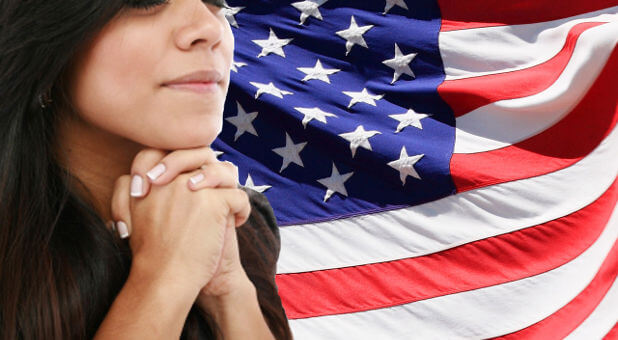There is plenty of intense anger and distress in the hearts of American churchgoers today. Many are deeply conflicted about contemporary political and social issues.
With a seemingly justified sense of agitation, many Christians are ready to aggressively counteract everything that stands in the way of their practices. Some believers are even ready to call down judgment on the perpetrators who are “disfiguring” their identity and cultural expressions.
It’s easy to identify with fierce disappointments and anxieties. It can be unsettling to get caught up in intense social upheavals. Some observe a power-grab taking place whose goal is to banish evangelicals from the sphere of public discourse. A growing number of churchgoers are concerned that their worldview is being relegated to the periphery.
For many, this conflict is more than mere politics and economics. It involves concerns about the United States descent into sin. They’re convinced that what’s being advocated in the current climate is careening into unspeakable darkness and degradation.
Many are pleading with God to bring down fire on our nation. They want the Lord to do something about this sin (as well as our loss of status). I recently heard it said, “Those people are what’s wrong with our nation and they deserve the wrath of God.” They could have just as easily said, “Don’t let their brokenness and confusion fool you, they simply need to be annihilated and expunged from the earth.”
Is that the right kind of outlook?
Let me be clear. It’s easy for Christians to harbor fears about “outsiders,” but in most cases it’s the “insiders” who are actually causing the greatest breakdown. Contrary to popular opinion, it’s not what’s “without,” but what’s “within” that’s undermining the mission of the American church. Agitated, self-righteous people are standing in the way of the good news.
Don’t be mistaken, anger and condescension can’t continue to define American Christianity. It’s continuance will undermine our identity and calling. There’s more at stake in all of this than our own liberties or sense of satisfaction. Through our retribution and attempts of vindication, the love of God gets distorted to those who need to see it the most. It would be a tragedy for the sons and daughters of the Most High to stain His benevolent character. Yet, that is often transpiring.
Calling Down Fire?
American Christians aren’t the only ones who’ve experienced this sort of struggle. The early Hebraic followers of Jesus also wrestled with this confusing reality. As they encountered intense wickedness and dishonor, their anger spiked and they were determined to do something about it.
In one example, in Luke 9, there was a Samaritan village that decided to renounce the ways of Jesus. The disciples wondered how the people could embrace such wretchedness.
James and John, in particular, were deeply agitated. They couldn’t believe that any group of people would take on that kind of attitude and lifestyle. So, they petitioned Jesus to allow them to bring a fierce judgment upon the perverse and wayward. They said,
“When His disciples James and John saw this, they said, “Lord, do You want us to command fire to come down from heaven and consume them, even as Elijah did?” (Luke 9:54).
Jesus was honestly bewildered by their request. He was astounded that His faithful followers would respond so fiercely. Although the Samaritans rejected the Good News and demonstrated an affection for darkness, this didn’t justify the punitive attitude of the disciples.
Jesus couldn’t imagine individuals entering the New Covenant era calling down wrath on a city. That just isn’t how things were supposed to operate in the Messianic Age. While there will be an ultimate reckoning in the end of days, that culminating time of judgment has not yet come. In the present season, Jesus is focusing on salvation, not bloodshed and wrath.
Sternly reprimanding His closest friends, Jesus declared,
“You do not know what kind of spirit you are of. 56 For the Son of Man did not come to destroy men’s lives but to save them” (Luke 9:55-56).
Jesus was warning His most zealous followers that they must guard their hearts and steer clear of a “wrong religious spirit.” No matter how brutal or ingrained the wickedness is in a region, the righteous have an obligation to advance in the gracious love of the Father.
Conclusion
Some will fervently disagree, but I’m convinced that Jesus is affirming the same reality to believers today. No matter the ugliness, Christians have no business decreeing this kind of judgment. We need to leave Las Vegas, San Francisco and New Orleans alone. More importantly, there’s the issue of the broader United States. Though her sins are many, no one should be calling down fire upon her. That’s simply not what a New Covenant believer does.
Contrary to what’s heard on radio, in popular paperbacks, and in the pulpits, we can’t acquiesce to a life of bitterness and punitive displays. Our agitations over the abortionists, homosexuals and other evil practitioners simply won’t move things forward.
When Christians get overly caught up in things like this, we get entangled in the wrong spirit. Believers must stop decreeing death and destruction—even to those who actually deserve such judgments. We must find a way to become a better expression of the Lord’s goodness and life.
In this challenging hour, how are you responding to the wickedness around you? Are you calling down fire or embodying the Lord’s salvation? What kind of spirit are you of?
J.D. King is an author, speaker and director of the World Revival Network.














































